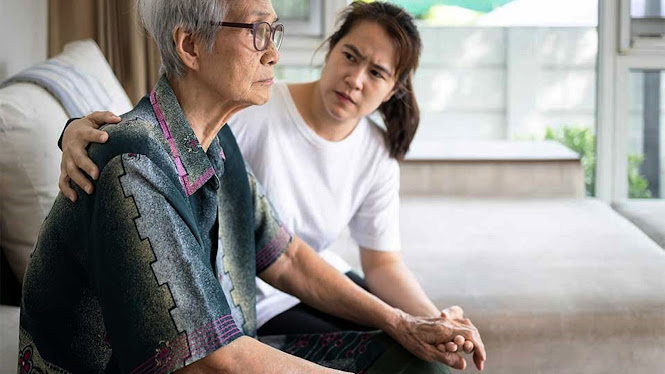Is a Senior Loved One Having Mental Health Issues? Here’s What to Look For
In the US, 11.75 million seniors have mental health issues. Sometimes, a caregiver needs to distinguish between normal aging behaviors and indicators their senior needs a psychological care provider. Are changing eating and sleeping patterns the result of aging or depression? If an older loved one exhibits any of the below symptoms, contact their doctor ASAP. Home Care Edmonton has some info for family caregivers;
Alzheimer's Disease
A loss of brain mass attributable to the death of brain cells causes Alzheimer's disease. During the first stage of Alzheimer's disease, there is no evidence that anything is wrong. It can take 20 years for AD symptoms to present. The psychological symptoms of Alzheimer's include aggressive behavior, hallucinations, and the mistaken belief that someone is stealing from them.
Anxiety
Debilitating anxiety affects over one-quarter of American seniors. Emotional trauma, health concerns, and medications are some anxiety risk factors. There are seven recognized anxiety disorders, among them are generalized anxiety disorder, OCD, and PTSD.
• Acute stress disorder • Panic attacks • Phobias • Social anxietyOnly a physician can determine if a senior has anxiety or another health issue. For example, feelings of imminent doom and the inability to sleep could have roots in anxiety, depression, or dementia. Gastric distress, abnormal sweating, and a rapid heart rate might be anxiety or physical health concerns.
Bipolar Disorder
Bipolar disorder presents as long periods of deep depression alternating with extended euphoria. Specific bipolar symptoms mimic depression and dementia. Indicators unique to BPD are impulsive and high-risk behaviors and unusual sex drive. Bipolar disorder and anxiety disorder sometimes go hand-in-hand.
Dementia
Dementia impairs a person's ability to function by interfering with the ability to reason, remember, and think. If a senior demonstrates poor judgment and confusion, suspect dementia. Also, watch for impaired movement, getting lost in familiar areas, and trouble expressing thoughts verbally.
A Note About Dementia
Some sources classify dementia disorders like Alzheimer's as mental health issues. The American Psychiatric Association recognizes cognition diseases as neurocognitive disorders. Either way, if you care for a senior loved one, you should know the dementia warning signs.
Depression
People over 60 are the group most likely to experience depression. Melancholia in seniors has emotional causes like loneliness and physical roots, including strokes. Unrelenting sadness with the loss of hope and self-esteem are classic depression symptoms. Depression and dementia share indicators, e.g., trouble with concentration, reasoning, and memory. Melancholia may also be a dementia symptom, so if a senior appears depressed, contact their doctor immediately.
Social Anxiety Disorder
Does your senior avoid social settings because being around others makes them anxious and self-conscious? Do they obsess over how others perceive them? If the answer is yes to these questions, your loved one likely has a social anxiety disorder. Social anxiety requires medical intervention. Reluctance to interact with people could be rooted in dementia warning signs like the inability to recall names and faces.
Homecare providers can help seniors with household tasks, grocery shopping, and transportation to appointments. They can also provide companionship and support. Homecare services can make it possible for seniors to remain in their homes and maintain their independence. If you are concerned about a loved one who seems to be showing signs of depression, contact senior home care Edmonton, AB to discuss your options.



Comments
Post a Comment